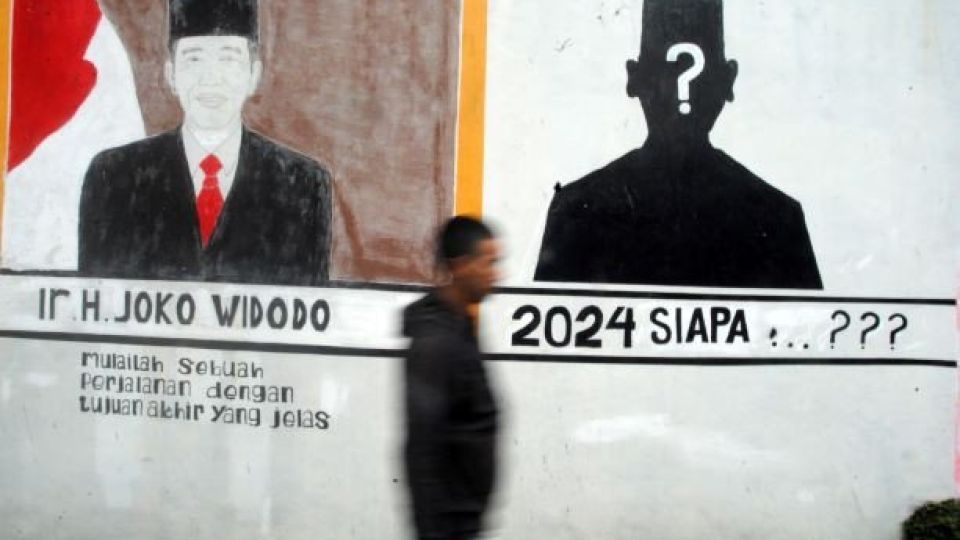March 17, 2023
JAKARTA –
With young voters making up the majority of voters and the promise of a demographic bonus looming in the near future, the younger generation is set to take the spotlight in the 2024 general election. But political parties are so out of touch with the youth that even the nation’s younger politicians struggle to engage their peers.
The numbers do not look promising for political parties seeking to capture the support of the growing youth voting bloc. In a survey conducted in August, the Jakarta-based think tank Centre for Strategic and International Studies (CSIS) found while 63.8 percent of young voters, defined as those within the 17-39 age group, are still supportive of democracy, signs of discontent about the political system are starting to show.
More than 18 percent respondents are of the belief that democracy does not change anything, up from 10 percent in 2018. Trust in democratic institutions remains relatively low, with only 56.5 percent of respondents having a favorable opinion of the House of Representatives, the lowest among 11 institutions included in the poll.
This has left a serious problem for the parties.
Persistent problem
Generation Z, which makes up the majority of first-time voters, has been stereotypically portrayed as self-centered and politically apathetic, particularly to local or national party politics, but young politicians claim the limited political participation of young people in politics is in fact a cross-generational problem.
Gerindra central executive board member Budisatrio Djiwandono, who first joined the party through its youth wing, Tunas Indonesia Raya (Tidar), recalled how hard it was to reach out to youth voters in the 17 to 25 age group when he first started out in 2008 as a 27-year-old.
“It’s hard enough for political parties to convince the young their vote matters, let alone getting them to join a political party,” said Budi at a discussion hosted by CSIS on Wednesday. “More importantly, after they join the party, could they maintain their trajectory and continue to rise through the ranks and live as a loyal member of a political party?”
Read also: Youth not ‘an election commodity’: young politicians
Indonesia Solidarity Party (PSI) deputy secretary general Dedek “Uki” Prayudi is an example of the latter case. “I came home to Indonesia [after studying in New Zealand] and joined a political party. There, I lasted only two months, and I ended up abstaining from voting [in the legislative election] for 15 years,” said Uki, after being disillusioned with corruption in political parties.
PSI is the only party claiming to be the party of the youth; it once dubbed itself the party of the millennials. But even PSI fails to retain some its young members. Several PSI members left the party for various reasons. One of them, Michael Victor Sianipar, said the party was no longer the party he once envisioned.
Political education
Separately, House member Puteri Komarudin of the Golkar faction and chief of the Indonesia Youth Parliamentary Caucus (KPPI) confirmed this was an issue the House must confront. “While they represent the majority of voters, the youth is not involved in policymaking and there’s been no formal encouragement for them to be involved in politics as party members,” said Puteri on Wednesday.
Based on data from the General Election Commission (KPU), youth representation in the House remains low with the 17 to 39 age group representing only 15 percent of the House. To help rectify this, Budi proposed political parties should be allowed to enter schools and start political education at an early age.
Read also: As political discourse heats up on social media, young voters learn to block noise
Aside from getting the younger generation more involved in politics, Budi argues they could use the opportunity to see which party’s ideologies line up with their aspirations.
However, researcher Cakra Yudi Putra of Total Politik argued simply nominating younger politicians as candidates would not be enough to raise youth representation in the House. Based on data from the 2014 and 2019 general elections, Cakra found the number of youth voters does not affect the electability of youth politicians during elections.
“There’s this tendency for parties to try and reach out to young voters based on their lifestyle or other superficial factors. Young voters are rational; they consider the competence of the parties and the young candidates in question [more important],” he said.
Youth matters
Data from a CSIS survey also support this analysis, with the personality of candidates mattering less and less to young voters. In 2019, 39.2 percent of respondents voted humility to be the most important characteristic for a leader, with decisiveness and charisma coming in at second place with 16.5 percent of the votes.
By 2022, a track record of honesty had taken over, with 34.8 percent respondents citing anti-corruption stance as the most important factor. In second place, 16.8 percent respondents said leadership experience was what mattered most.
Given the youth’s focus on more substantive issues, CSIS political researcher Arya Fernandes encourages presidential candidates to engage in more policy-based campaigns and more debates outside of KPU-sanctioned events. “We have to push for an open forum, perhaps involving the media and universities, where the public can dig more into what the candidates have in mind for Indonesia,” said Arya on Tuesday. (ahw)


